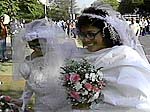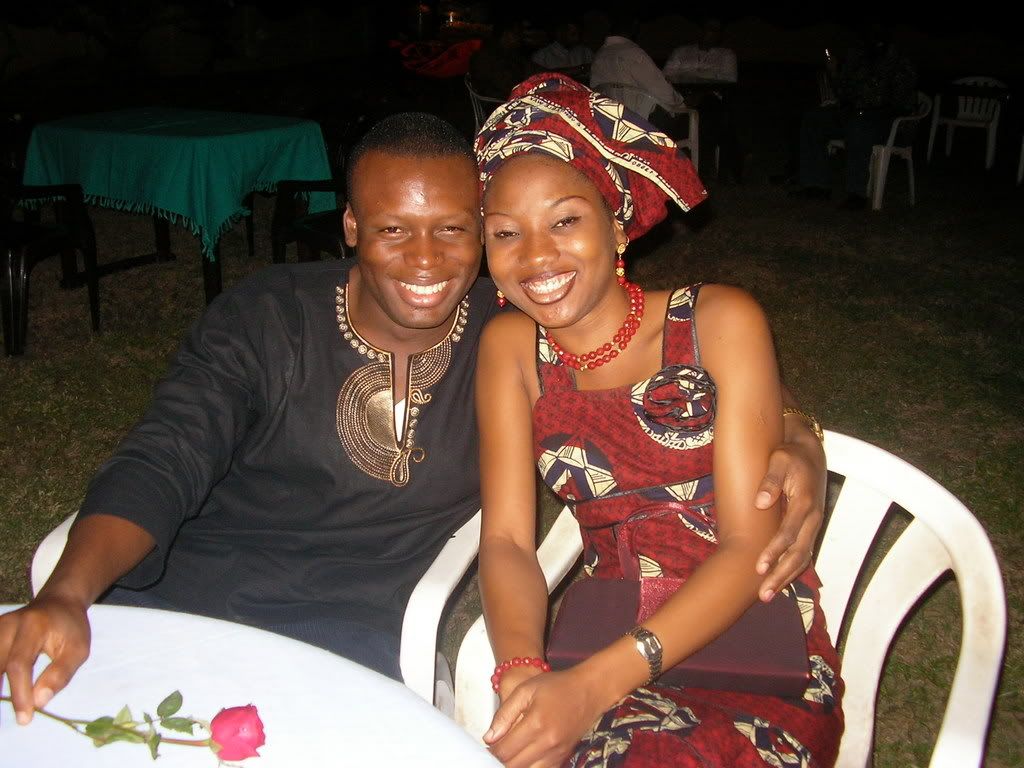The Word of God shows us a God who cares passionately for the poor.
Psalm 113:
1. Praise the LORD. Praise, O servants of the LORD, praise the name of the LORD.
2. Let the name of the LORD be praised, both now and forevermore.
3. From the rising of the sun to the place where it sets, the name of the LORD is to be praised.
4. The LORD is exalted over all the nations, his glory above the heavens.
5. Who is like the LORD our God, the One who sits enthroned on high,
6. who stoops down to look on the heavens and the earth?
7. He raises the poor from the dust and lifts the needy from the ash heap;
8. He seats them with princes, with the princes of their people.
9. He settles the barren woman in her home as a happy mother of children. Praise the LORD.
John Stott, a British Christian leader who is noted as a leader of the worldwide evangelical movement noted that: “The psalmist is affirming something distinctive - indeed unique - about Yahweh, which enables him to ask the rhetorical question, Who is like the Lord our God?” From the heights of heaven above he stoops down and is mindful of the poor man and stretches out his hand and tenderly lifts him up and gives him a place of significance and honour. The world discards the poor man and looks down on a woman who has not born children. But our God cares for the poor man and the barren woman and acts on their behalf. There is no God like our God. “For it is not primarily the wealthy and the famous with whom he delights to fraternise. What is characteristic of him is to champion the poor, to rescue them from their misery, and to transform paupers into princes.”
This is repeatedly affirmed through out the scriptures.The God who lifts up the humble also puts down the proud.
Who are the Poor?
- Economically - no food, clothing or shelter
- Health - People with AIDS, TB, Leprosy, Epilepsy, & other incurable debilitating (weakening) diseases
- Challenged - Physically, Mentally
- Weak & vulnerable - Widows, (women/girls general), orphans, (children general), Old, Schedule Caste, Illiterate, Debts that cannot be paid back, Bonded labourers (slaves)
Hannah's song:
I Samuel 2:8a
"He raises the poor from the dust and lifts the needy from the ash heap; he seats them with princes and has them inherit a throne of honor."
Mary's song:
Acknowledges Mary's gratitude that God has chosen not some famous, noble or wealthy woman but a nobody - a woman of low state. He has done great things for her. "He has performed mighty deeds with his arm; he has scattered those who are proud in their inmost thoughts. He has brought down rulers from their thrones but has lifted up the humble. He has filled the hungry with good things but has sent the rich away empty." (Luke 1:51-53)
Stark contrasts:
* The proud are brought down - the humble lifted up and exalted
* The rich are impoverished - the poor enriched
* The well-fed are sent away empty - the hungry filled with good things
* The powerful rulers are toppled from their thrones - the powerless are given thrones to reign on
Who is like our God? His thoughts and ways are very very different from our ways and thoughts. Its upside down when compared to man's ways.
God has concern and care for the poor. He identifies with them.
The nation of Israel & the Poor ( In the Bible)
1. Don't exploit the poor & weak. Be compassionate & respect them.
Exodus 22: 25-27: "If you lend money to one of my people among you who is needy, do not be like a moneylender; charge him no interest. If you take your neighbour's cloak as a pledge, return it to him by sunset, because his cloak is the only covering he has for his body. What else will he sleep in? When he cries out to me, I will hear, for I am compassionate."
Deut 24: 10-13 "When you make a loan of any kind to your neighbour, do not go into his house to get what he is offering as a pledge. Stay outside and let the man to whom you are making the loan bring the pledge out to you. If the man is poor, do not go to sleep with his pledge in your possession. Return his cloak to him by sunset so that he may sleep in it. Then he will thank you, and it will be regarded as a righteous act in the sight of the LORD your God."
2. Employers don't exploit the poor worker.
Deut 24: 14-15: "Do not take advantage of a hired man who is poor and needy, whether he is a brother Israelite or an alien living in one of your towns. Pay him his wages each day before sunset, because he is poor and is counting on it. Otherwise he may cry to the LORD against you, and you will be guilty of sin."
3. Farmers take care of the poor.
Regular tithes were to be used to support the needy as shown in Deut 14: 28-29: "At the end of every three years, bring all the tithes of that year's produce and store it in your towns, so that the Levites (who have no allotment or inheritance of their own) and the aliens, the fatherless and the widows who live in your towns may come and eat and be satisfied, and so that the LORD your God may bless you in all the work of your hands."
Leave some for them...
Leviticus 19: 9-10 "When you reap the harvest of your land, do not reap to the very edges of your field or gather the gleanings of your harvest. Do not go over your vineyard a second time or pick up the grapes that have fallen. Leave them for the poor and the alien. I am the LORD your God."
Deut 24:19-22 "When you are harvesting in your field and you overlook a sheaf, do not go back to get it. Leave it for the alien, the fatherless and the widow, so that the LORD your God may bless you in all the work of your hands. When you beat the olives from your trees, do not go over the branches a second time. Leave what remains for the alien, the fatherless and the widow. When you harvest the grapes in your vineyard, do not go over the vines again. Leave what remains for the alien, the fatherless and the widow. Remember that you were slaves in Egypt. That is why I command you to do this."
Every 7th year leave the ground open...
Exodus 23: 10 "For six years you are to sow your fields and harvest the crops,but during the seventh year let the land lie unplowed and unused. Then the poor among your people may get food from it, and the wild animals may eat what they leave. Do the same with your vineyard and your olive grove."
God's heart:
Deut 15: 3 -11 "You may require payment from a foreigner, but you must cancel any debt your brother owes you. However, there should be no poor among you, for in the land the LORD your God is giving you to possess as your inheritance, he will richly bless you, if only you fully obey the LORD your God and are careful to follow all these commands I am giving you today. For the LORD your God will bless you as he has promised, and you will lend to many nations but will borrow from none. You will rule over many nations but none will rule over you. If there is a poor man among your brothers in any of the towns of the land that the LORD your God is giving you, do not be hardhearted or tight fisted toward your poor brother. Rather be open handed and freely lend him whatever he needs. Be careful not to harbor this wicked thought: "The seventh year, the year for canceling debts, is near," so that you do not show ill will toward your needy brother and give him nothing. He may then appeal to the LORD against you, and you will be found guilty of sin. Give generously to him and do so without a grudging heart; then because of this the LORD your God will bless you in all your work and in everything you put your hand to. There will always be poor people in the land. Therefore I command you to be open handed toward your brothers and toward the poor and needy in your land."
* A responsibility
* A planned and systematic way
* Generously
* Promise of blessing:
- Prov 19:17 "He who is kind to the poor lends to the Lord & the Lord will reward him."
- Acts 10: 4 "Cornelius stared at him in fear. "What is it, Lord?" he asked. The angel answered, "Your prayers and gifts to the poor have come up as a memorial offering before God."
Jesus and the Poor
Luke 4:18-19 "The Spirit of the Lord is on me, because he has anointed me to preach good news to the poor. He has sent me to proclaim freedom for the prisoners and recovery of sight for the blind, to release the oppressed, to proclaim the year of the Lord's favour."
The Gospel is for all, but the poor are very specially singled out. Jesus told John's disciples to tell John in Matthew 11:4 as follows, "Go back and report to John what you hear and see: The blind receive sight, the lame walk, those who have leprosy are cured, the deaf hear, the dead are raised, and the good news is preached to the poor."
Jesus showed concern for the poor while he was on earth
Luke 12: 33 "Sell your possessions and give to the poor. Provide purses for yourselves that will not wear out, a treasure in heaven that will not be exhausted, where no thief comes near and no moth destroys."
Luke 14: 12-14 "Then Jesus said to his host, "When you give a luncheon or dinner, do not invite your friends, your brothers or relatives, or your rich neighbors; if you do, they may invite you back and so you will be repaid. But when you give a banquet, invite the poor, the crippled, the lame, the blind, and you will be blessed. Although they cannot repay you, you will be repaid at the resurrection of the righteous."
Matthew 25: 34-40 "Then the King will say to those on his right, 'Come, you who are blessed by my Father; take your inheritance, the kingdom prepared for you since the creation of the world. For I was hungry and you gave me something to eat, I was thirsty and you gave me something to drink, I was a stranger and you invited me in, I needed clothes and you clothed me, I was sick and you looked after me, I was in prison and you came to visit me.' "Then the righteous will answer him, 'Lord, when did we see you hungry and feed you, or thirsty and give you something to drink? When did we see you a stranger and invite you in, or needing clothes and clothe you? When did we see you sick or in prison and go to visit you?' "The King will reply, 'I tell you the truth, whatever you did for one of the least of these brothers of mine, you did for me.'"
Jesus and his disciples
* They shared a common purse - John 12:6
* Rich shared their resources with Jesus team - Luke 8:1-3
The Jerusalem Church
Acts 2: 44-45: "All the believers were together and had everything in common. Selling their possessions and goods, they gave to anyone as he had need."
Acts 4: 36-37: "Joseph, a Levite from Cyprus, whom the apostles called Barnabas (which means Son of Encouragement), sold a field he owned and brought the money and put it at the apostles' feet."
Acts 4: 34-35: "There were no needy persons among them. For from time to time those who owned lands or houses sold them, brought the money from the sales and put it at the apostles' feet, and it was distributed to anyone as he had need. God's command of Deut 15:4 'there should be no poor among you' is fulfilled"
Acts 6 describes the distribution of food for the needy. A Problem arose of some widows being neglected. The Apostles took the responsibility and chose Men full of the Spirit and wisdom, but how did they solve the problem?
Acts 6:6-7: "They presented these men to the apostles, who prayed and laid their hands on them. So the word of God spread. The number of disciples in Jerusalem increased rapidly, and a large number of priests became obedient to the faith."
Great blessing follows caring for the needy. As the apostolic work grew new churches were planted but they showed concern for the poor and needy across the churches. In Acts 11:29, 30 see how support was sent to the Judean church.
Apostolic mandate
Galatians 2: 10 "All they asked was that we should continue to remember the poor, the very thing I was eager to do.Gal 6:10 Therefore, as we have opportunity, let us do good to all people, especially to those who belong to the family of believers."
2 Corinthians 8: 13 "Our desire is not that others might be relieved while you are hard pressed, but that there might be equality."
James 1: 27 "Religion that God our Father accepts as pure and faultless is this: to look after orphans and widows in their distress and to keep oneself from being polluted by the world."

























